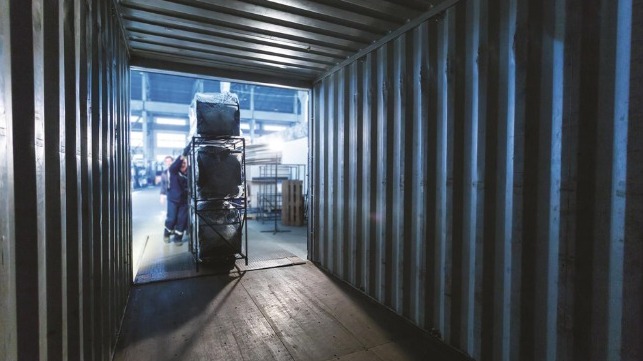Collaboration Seeks to Achieve Container Safety Improvements

A new collaboration among some of the leading organizations involved in the cargo shipping industry is seeking to address the persistent issues around the poor packing of cargoes. It is the industry’s latest initiative designed to raise awareness to reduce accidents both aboard ship and in port related to failures to adhere to the established guidelines and best practices in cargo packing.
In launching the new program, the shipping industry is coming together to raise awareness about the practices including failures to secure cargo, overloading, and incorrect declaration of contents that have all been cited as contributing factors to incidents ranging from fires at sea to the loss of cargo overboard. Other occurrences, such as container stack failures, vehicle roll-overs, train derailments, internal cargo collapses, and incidents of invasive pest contamination can also be traced to poor packing practices.
Highlighting that these practices have resulted in fatalities and serious injuries for ships’ crews and shore-side personnel, five international freight transport and cargo handling organizations will collaborate on new tools to raise awareness and provide guidance on packing standards for containers and other forms of cargo transportation. The collaboration, which is known as the Cargo Integrity Group is dedicated to improving the safety, security, and environmental performance throughout the logistics supply chain.
The goal of the collaboration, which consists of the Container Owners Association, the Global Shippers Forum, the International Cargo Handling Co-ordination Association, the TT Club, and the World Shipping Council, is to further the adoption and implementation of crucial safety practices throughout the global supply chain. They also aim to promote awareness and wider use of the IMO/ILO/UNECE Code of Practice for Packing of Cargo Transport Units known throughout the industry as the CTU Code.
“We believe it is important to pro-actively review and, where needed, revise existing regulatory provisions to enhance ship, crew, and worker safety,” said Lars Kjaer from WSC. “For example, working closely with other partners, we have been able to ensure the launching of a considered review of the maritime Special Provisions in the IMO’s International Maritime Dangerous Goods (IMDG) Code. Such Special Provisions may today lead to exemptions from the Code’s safety and documentary requirements with the result that the carrier may not be able to take necessary precautionary measures.”
The organizations believe that consistent, widespread, and diligent adherence to the CTU Code by all parties within global CTU supply chains would significantly reduce these types of incidents One of their first initiatives was the publication of a new quick reference guide to the CTU Code as well as a checklist of actions and responsibilities to assist in the packing of cargoes.
“A key objective of our mission is promoting awareness of the CTU Code,” said Capt. Richard Brough OBE of ICHCA International. “We have a dedicated set of outcomes designed to achieve this aim, which begins with the publication of our ‘CTU Code - a Quick Guide’. We want the Code to be as accessible to as many operatives as possible and hope this Quick Guide will encourage them to learn how the Code can be applied to their own particular needs.”
Among the other initiatives that they will be undertaking will be seeking changes in regulatory requirements to improve the clarity, application, implementation, and enforcement of regulations, including the International Maritime Dangerous Goods (IMDG) Code. At the same time, they will also work across the industry and with government in promoting awareness and a better understanding of safe cargo packing and handling practices.
They will also work to promote awareness and adoption of the CTU Code and monitoring packing performance. The group will also support the strengthened cargo screening processes and more effective container inspection programs to improve performance and adherence to the standards. It is hoped that their efforts can further contribute to the progress that is being made to better screen cargo especially to identify and correct incidents of misdeclaration of contents.
“Carriers have been advancing their capability to screen cargo at the time of booking in order to combat the curses of error and fraud that cause misdeclarations and unacceptable risk for the industry,” said TT Club’s Peregrine Storrs-Fox. “Such actions can also support and empower industry and government-sponsored container inspection programs that are fundamental to improving good practice and understanding how regulations actually operate. It is thus part of CIG’s third objective to participate in the ongoing revision of the IMO Circular regarding container inspection programs and support related industry cargo screening initiatives.”
Finally, recognizing that it requires participation from all sectors the group is also encouraging others ranging from the shipping lines and freight forwarders to government agencies to all become involved in the effort.
“Today is a marker on a journey to raise wider awareness of this critical issue across the globe and adoption of safe practices,” said James Hookham of GSF. “Our organizations cannot do this on their own and we are reaching out to other bodies in the supply chain and in governmental agencies to join with us in promoting high standards of the packing of all cargo transport units and understanding the inter-connectedness of differing objectives.”
